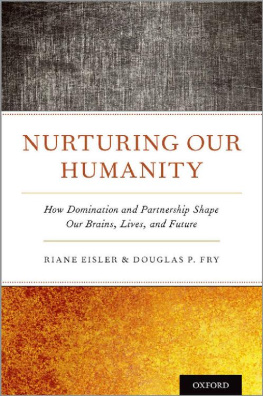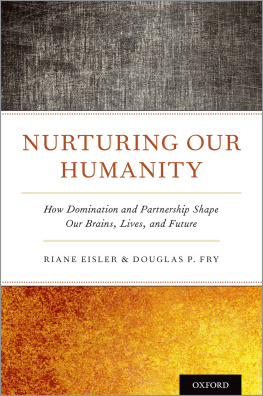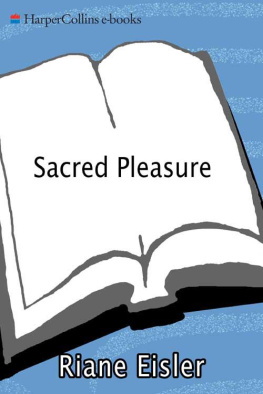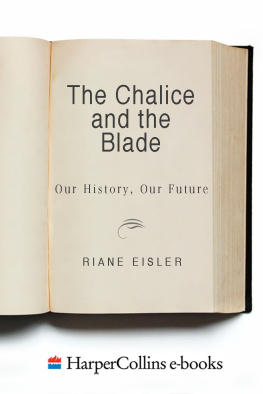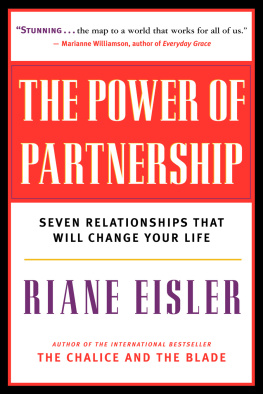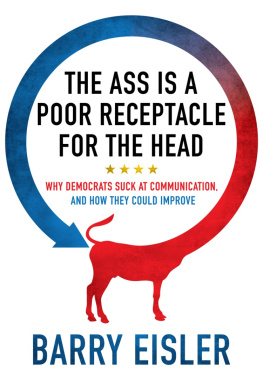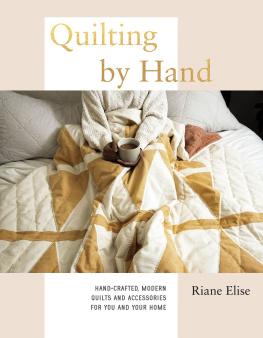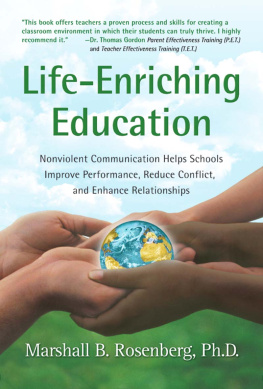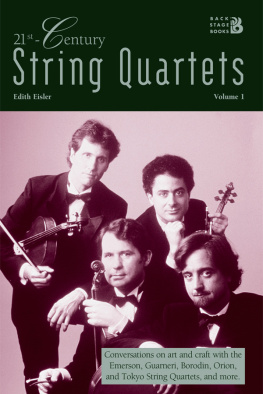Riane Eisler - Nurturing Our Humanity
Here you can read online Riane Eisler - Nurturing Our Humanity full text of the book (entire story) in english for free. Download pdf and epub, get meaning, cover and reviews about this ebook. year: 2019, publisher: Oxford University Press, genre: Romance novel. Description of the work, (preface) as well as reviews are available. Best literature library LitArk.com created for fans of good reading and offers a wide selection of genres:
Romance novel
Science fiction
Adventure
Detective
Science
History
Home and family
Prose
Art
Politics
Computer
Non-fiction
Religion
Business
Children
Humor
Choose a favorite category and find really read worthwhile books. Enjoy immersion in the world of imagination, feel the emotions of the characters or learn something new for yourself, make an fascinating discovery.
- Book:Nurturing Our Humanity
- Author:
- Publisher:Oxford University Press
- Genre:
- Year:2019
- Rating:3 / 5
- Favourites:Add to favourites
- Your mark:
- 60
- 1
- 2
- 3
- 4
- 5
Nurturing Our Humanity: summary, description and annotation
We offer to read an annotation, description, summary or preface (depends on what the author of the book "Nurturing Our Humanity" wrote himself). If you haven't found the necessary information about the book — write in the comments, we will try to find it.
Nurturing Our Humanity — read online for free the complete book (whole text) full work
Below is the text of the book, divided by pages. System saving the place of the last page read, allows you to conveniently read the book "Nurturing Our Humanity" online for free, without having to search again every time where you left off. Put a bookmark, and you can go to the page where you finished reading at any time.
Font size:
Interval:
Bookmark:
RIANE EISLER, JD, PHD (HON)
President, Center for Partnership Studies
DOUGLAS P. FRY, PHD
Professor & Chair
Department of Peace and Conflict Studies
University of North Carolina at Greensboro


Oxford University Press is a department of the University of Oxford. It furthers the Universitys objective of excellence in research, scholarship, and education by publishing worldwide. Oxford is a registered trade mark of Oxford University Press in the UK and certain other countries.
Published in the United States of America by Oxford University Press
198 Madison Avenue, New York, NY 10016, United States of America.
Oxford University Press 2019
All rights reserved. No part of this publication may be reproduced, stored in a retrieval system, or transmitted, in any form or by any means, without the prior permission in writing of Oxford University Press, or as expressly permitted by law, by license, or under terms agreed with the appropriate reproduction rights organization. Inquiries concerning reproduction outside the scope of the above should be sent to the Rights Department, Oxford University Press, at the address above.
You must not circulate this work in any other form and you must impose this same condition on any acquirer.
Library of Congress Cataloging-in-Publication Data
Names: Eisler, Riane, author. | Fry, Douglas P., 1953 author.
Title: Nurturing our humanity : how domination and partnership shape our
brains, lives, and future / Riane Eisler and Douglas P. Fry.
Description: New York : Oxford University Press, [2019] |
Includes bibliographical references and index.
Identifiers: LCCN 2018061070 | ISBN 9780190935726 | eISBN 9780190935740
Subjects: LCSH: Interpersonal relations. | Dominance (Psychology) |
PartnershipPsychological aspects. | Human evolution.
Classification: LCC HM1111.E37 2019 | DDC 302dc23
LC record available at https://lccn.loc.gov/2018061070
For millennia, humans have imagined a peaceful and just world. Sometimes we only imagined this world in an afterlife. But over the last centuries, many of us have imagined it right here on Earth. Not a utopia, not a perfect world. But a world where peace is more than just an interval between wars, where dire poverty, brutal oppression, insensitivity, cruelty, and despair are no longer just the way things are.
Now there is a new urgency to our wish for a more humane world. Every day we are bombarded by news of barbaric human rights abuses, terrorist attacks, proliferation of nuclear weapons, and a drift back to strongman rule. The destruction of our natural environment continues at an accelerating pace, endangering our global life-support systems. New technologies, from artificial intelligence to biological engineering, could have catastrophic results if guided by cultural values of greed, megalomania, and disregard for human rights.
From all sectorsreligious and secular, philosophical and scientific, and thousands of small groups worldwidecome calls for cultural transformation: for building a truly humane culture. The pivotal question is whether such a cultureone that supports rather than inhibits human well-being and our capacities to love, create, and prosperis possible.
Nurturing Our Humanity offers extensive evidence that we can construct this humane culture. Based on findings from both biology and social sciences, we today know that the cultural environments we create affect nothing less than how our brains develop and hence how we think, feel, and act. But Nurturing Our Humanity takes bioculturalism further. It examines our cultural environments through a powerful new analytical tool: the Biocultural Partnership-Domination Lens.
Rather than viewing societies through the lenses of familiar social categories such as religious versus secular, Eastern versus Western, rightist versus leftist, or capitalist versus socialist, which only describe a particular aspect of society, the Biocultural Partnership-Domination Lens uses two larger cultural configurations at opposite ends of a continuum: the partnership system and the domination system. This broader frame makes it possible to identify the conditions that support the expression of our human capacities for caring, creativity, and consciousness or, alternately, for insensitivity, cruelty, and destructiveness. It upends age-old assumptions about human nature and the supposed impossibility of improving the human condition, showing how we can bring about fundamental change. The new interdisciplinary perspective of the Biocultural Partnership-Domination Lens reveals how cultural beliefs and social institutions such as politics, economics, and education affect, and are in turn affected by, childhood and gender relations; highlights the impact of these early experiences and observations on how our brains develop; and shows how we can use our knowledge of human development to construct equitable and sustainable cultures that maximize human well-being.
Nurturing Our Humanity re-examines vital matters ranging from sex, love, intimacy, parenting, and romance to human rights, social justice, politics, economics, violence, and values from this integrative perspective. It sheds new light on critical current issues, all the way from climate change, scapegoating, authoritarianism, racism, and other forms of in-group versus out-group thinking to contemporary disputes about biological and cultural evolution, economics, national and international politics, religious fundamentalism, and the uses and potential abuses of technological breakthroughs.
We explore how our capacities for caring, creativity, and consciousness go way back in evolutionary time and are integral to human nature, and we show that there have been, and continue to be, cultures that orient to the partnership side of the continuum. We look at how domination systems produce high levels of stressfrom stressful early family experiences to the artificial creation of economic scarcityand how this plays out in the neurochemistry of the brain, tending to keep people at a less advanced level of overall human development that interferes with the full flourishing of those very qualities that make people happiest: security, empathy, consciousness, creativity, and love. On the other hand, partnership-oriented environmentsas illustrated by conditions in contemporary societies ranging from the Minangkabau in Southeast Asia to European Nordic nationsenhance the expression of our human capacities for health, happiness, well-being, consciousness, and creativity.
We draw from recent studies showing that the difficulty some people have in dealing with change (with its implications for denial of climate change and other present threats) and the tendency of such people to support punitive political agendas (such as capital punishment, heavy investment in prisons and the military, and scapegoating of minorities, women, and gays) are associated with a particular kind of brain development in people who are taught early on that dominating or being dominated are our only alternatives. We explore how patterns of touch, intimacy, and sexuality differ at opposite ends of the domination-partnership continuum and how the confluence of caring with coercion and pain is one of the most effective mechanisms for socializing people to suppress empathy and submit to domination as adults. We examine how the erotization of domination and violence lies behind mass shootings of women in the United States and Canada by some men who call themselves incel (involuntarily celibate) and behind the enslavement of women by fundamentalist groups like ISIS (the Islamic State of Iraq and Syria). We then contrast these unhealthy interactions with healthy ones supported by partnership-oriented cultures and look at how we receive neurochemical rewards of pleasure when we give or receive empathic love.
Font size:
Interval:
Bookmark:
Similar books «Nurturing Our Humanity»
Look at similar books to Nurturing Our Humanity. We have selected literature similar in name and meaning in the hope of providing readers with more options to find new, interesting, not yet read works.
Discussion, reviews of the book Nurturing Our Humanity and just readers' own opinions. Leave your comments, write what you think about the work, its meaning or the main characters. Specify what exactly you liked and what you didn't like, and why you think so.

